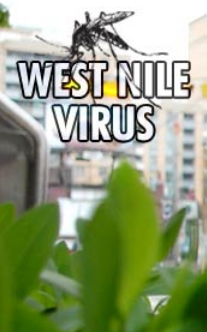
It’s been a long while that we have not received news about the West Nile Virus infections from mosquito bites in Toronto, Ontario, Canada.
Just recently, July 15, Toronto Public Health got their first West Nile Virus positive result for Toronto this year, from their weekly laboratory testing of mosquitoes caught in the 43 mosquito traps throughout the city.
The saying “no news is good news” applies here.
So, the good news are as follows:
- Number of people contracting West Nile Virus has declined in recent years.
- There have been no deaths in Toronto from West Nile Virus since 2005. (The virus was first discovered in Toronto in 2001, and in 2002 there were 163 cases and 11 deaths.)
- Only one human case of West Nile Virus infection since 2010.
- the risk of becoming infected with West Nile Virus is low.
However, prevention against bites is the best protection via the following recommended measures:
- Use mosquito repellent approved by Health Canada.
- Wear light-coloured clothing and cover up when in areas where mosquitoes are present.
- Take extra precautions, especially in early morning and early evening, when mosquitoes are most active.
- Remove standing water around your home and property.
- Furthermore, it was recently reported that mosquitoes are attracted to foot odour or stinky socks. Please note that these mosquitoes are malaria-carrying mosquitoes in Kenya, Africa. (Canadian scientists may want to investigate if Toronto mosquitoes behave in the same way towards stinky socks.)
Between June 6 and October 31, 2011 the City of Toronto is conducting a larviciding program under the authority of Toronto’s Medical Officer of Health.
This larviciding program is designed to reduce mosquito population and the associated risks from West Nile virus, and involves:
- applying environmentally friendly products to reduce mosquito larvae (immature mosquitoes) that may be living in stagnant water;
- applying these products to about 200,000 municipal catch basins (storm sewers) and selected surface water sites on public property;
- up to four rounds of catch basin larviciding are planned this year;
- the first round to be indicated by a blue dot on the catch basin grate;
- treating surface water sites on public lands until the end of October
Please click here for more info or call 416-338-7600.
Toronto, Ontario, Canada
News Release
July 15, 2011
Mosquitoes test positive for West Nile Virus
Toronto Public Health received a laboratory report today indicating that mosquitoes in Toronto have tested positive for West Nile Virus (WNV). This is the first WNV positive result for Toronto this year.
“The positive test result is a good reminder for the public to protect themselves from mosquito bites, and to reduce mosquito breeding grounds by draining standing water around your home,” said Dr. Howard Shapiro, Associate Medical Officer of Health for Toronto Public Health.
Toronto Public Health has 43 mosquito traps throughout the city and sends mosquitoes for laboratory testing every week. Larvicides are also used in catch basins throughout the city to reduce the mosquito population.
The number of people contracting WNV has declined in recent years. The virus was first discovered in Toronto in 2001, and in 2002 there were 163 cases and 11 deaths. There have been no deaths in Toronto from WNV since 2005, and only one human case since 2010.
Although the risk of becoming infected is low, prevention against bites is the best protection. The following measures are recommended:
• Use mosquito repellent approved by Health Canada.
• Wear light-coloured clothing and cover up when in areas where mosquitoes are present.
• Take extra precautions, especially in early morning and early evening, when mosquitoes are most active.
• Remove standing water around your home and property.
For more information, visit http://www.toronto.ca/health/westnile or call 416-338-7600.
Toronto is Canada’s largest city and sixth largest government, and home to a diverse population of about 2.6 million people. Toronto’s government is dedicated to delivering customer service excellence, creating a transparent and accountable government, reducing the size and cost of government and building a transportation city. For information on non-emergency City services and programs, Toronto residents, businesses and visitors can dial 311, 24 hours a day, 7 days a week.
